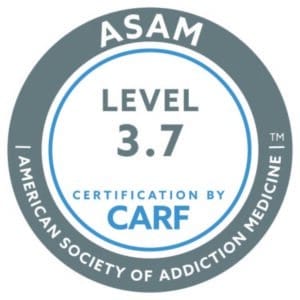Delta-8 THC has surged in popularity among cannabis enthusiasts and those seeking alternative wellness options. Many individuals are drawn to Delta-8 for its less intense psychoactive effects compared to Delta-9 THC, along with its unique potential health benefits. However, as with any cannabinoid, consuming Delta-8 can pose challenges if you are subject to drug testing. Understanding how long Delta-8 stays in your urine and what types of drug tests can detect it is crucial for anyone navigating legal, employment, or personal health considerations. This comprehensive guide will provide an in-depth look at Delta-8 detection times, the factors that influence its presence in your system, and practical tips for passing a drug test.
What Is Delta-8 THC?
Delta-8 tetrahydrocannabinol, commonly known as Delta-8 THC, is a naturally occurring cannabinoid found in trace amounts within the cannabis plant. While it shares a similar molecular structure with Delta-9 THC—the primary psychoactive compound in marijuana—Delta-8 is considered a minor cannabinoid. Its natural abundance in cannabis is less than 0.1%, so most commercial Delta-8 products are synthesized from cannabidiol (CBD) derived from hemp.
The growing interest in Delta-8 THC stems from its unique properties. Unlike Delta-9 THC, which is known for its potent psychoactive effects, Delta-8 offers a more subtle, clear-headed experience. Many users report feeling relaxed, focused, and uplifted without the intense euphoria or anxiety sometimes associated with traditional marijuana. This has made Delta-8 a popular choice for individuals who are sensitive to Delta-9 or are looking for a more manageable cannabis experience.
Beyond recreational use, Delta-8 is being studied for its potential health benefits. Preliminary research and anecdotal evidence suggest it may provide:
- Milder Psychoactive Effects: Delta-8 delivers a gentler high, making it ideal for those who want to avoid the overwhelming sensations of Delta-9 THC.
- Pain Relief and Anti-Inflammatory Properties: Early studies indicate Delta-8 may help manage chronic pain and inflammation, offering a potential alternative for those seeking natural relief.
- Reduced Anxiety and Improved Mood: Some users experience less anxiety and paranoia compared to Delta-9, making Delta-8 suitable for those prone to THC-induced anxiety.
- Appetite Stimulation: Like other cannabinoids, Delta-8 may stimulate appetite, which can benefit individuals undergoing treatments that affect hunger.
For more scientific background, the National Institutes of Health (NIH) provides resources on cannabinoids and their effects.
Why Do People Use Delta-8 THC?
Delta-8 THC appeals to a wide range of users, each with their own motivations. Here are some of the most common reasons people incorporate Delta-8 into their wellness or recreational routines:
- Recreational Use: In regions where Delta-9 THC remains illegal or heavily regulated, Delta-8 offers a legal alternative that still provides a pleasant, psychoactive experience. Its milder effects make it especially attractive to new users or those looking to avoid the side effects often linked to stronger THC products.
- Medical Applications: Individuals managing chronic pain, anxiety, depression, or sleep disorders may find relief with Delta-8. Its anti-nausea and appetite-boosting effects have also been highlighted by medical professionals and patients alike. For more information on the therapeutic use of cannabinoids, visit the National Cancer Institute’s cannabis research page.
- Alternative to Delta-9 THC: Some people experience adverse reactions to Delta-9 THC, such as increased anxiety, rapid heart rate, or paranoia. Delta-8 provides a similar, but more manageable, psychoactive profile, making it an appealing substitute.
- Legal Accessibility: Because Delta-8 is derived from hemp, it is often available in states where traditional cannabis products are restricted or illegal, though this status can change based on evolving state and federal laws.
How Long Does Delta-8 Stay in Your System?
Determining how long Delta-8 stays in your system is a nuanced process. The duration varies significantly based on several individual factors, such as frequency of use, dosage, method of ingestion, metabolism, and overall health. Understanding these variables can help you estimate your personal detection window, especially if you are facing an upcoming drug test.
Factors Affecting Delta-8 Retention
- Frequency of Use: Occasional users may clear Delta-8 from their systems more rapidly, often within a few days. In contrast, regular or heavy users can retain detectable levels for weeks due to accumulation in body fat.
- Amount Consumed: Higher doses increase the concentration of Delta-8 and its metabolites in your system, extending the detection period.
- Method of Consumption: The route of administration—whether vaping, smoking, eating edibles, or using tinctures—impacts absorption rates and how long the compound lingers. Edibles and oils are processed through the digestive system and liver, often resulting in longer retention times compared to inhalation.
- Individual Metabolism: People with faster metabolic rates process cannabinoids more efficiently, reducing the detection window. Factors such as age, body weight, hydration levels, and physical activity also play a role.
- Body Fat Percentage: As a fat-soluble compound, Delta-8 can accumulate in adipose tissue. Individuals with higher body fat may experience longer retention times.
Short-Term vs. Long-Term Use
Short-term users may only have Delta-8 in their system for a few days, while long-term or habitual users may find it detectable for several weeks. Extended use can also increase the risk of side effects, including elevated heart rate, memory impairment, coordination issues, and the potential onset of anxiety or depression. If you notice any adverse effects, consider discontinuing use and consulting a healthcare provider.
Delta-8 Detection in Urine Tests
Urine drug testing is the most widely used method for detecting recent drug use, including cannabinoids like Delta-8 THC. Employers, medical professionals, and legal authorities frequently rely on urinalysis due to its convenience, cost-effectiveness, and relatively long detection window.
Standard Urine Test Procedure
The process of urine drug testing generally follows these steps:
- Scheduling the Test: Most testing facilities require appointments, though walk-ins may be possible. Confirm with the facility beforehand to ensure availability.
- Providing Identification: You’ll need to present a valid ID and sometimes disclose the reason for testing, such as employment or legal requirements.
- Sample Collection: Under supervision or in a secure environment, you’ll provide a urine sample in a sterile container. The amount required is typically a few ounces.
- Sample Submission: The sample is sealed and sent to a laboratory for analysis.
- Result Waiting Period: Results are usually available within a few days to a week, depending on the complexity of the testing panel.
Detection Time for Delta-8 in Urine
On average, Delta-8 can be detected in urine for up to 30 days after use, especially in frequent or high-dose users. However, detection times can vary:
- Single Use: 2–5 days
- Moderate Use (a few times per week): 5–10 days
- Frequent/Heavy Use: 15–30 days or longer
Keep in mind, these are general estimates. Individual differences in metabolism, hydration, and body composition can significantly impact how long Delta-8 remains detectable in your system.
Comparing Urine Tests to Other Drug Tests
Urine testing is just one of several drug screening methods. Each has unique detection windows and accuracy levels:
| Type of Test | Detection Window | Pros | Cons |
|---|---|---|---|
| Urine Test | 2–30 days | Non-invasive, widely available, affordable | Moderate accuracy, risk of false positives |
| Blood Test | Few hours to 2 days | High accuracy, detects recent use | Invasive, short detection window |
| Saliva Test | 1–7 days | Non-invasive, can be done at home | Short detection window, lower sensitivity |
| Hair Test | Up to 90 days | Longest detection period, difficult to tamper | Expensive, not widely used for cannabinoids |
For more information on drug testing technologies and their reliability, refer to the Substance Abuse and Mental Health Services Administration (SAMHSA).
Factors Influencing Delta-8 Detection Time
Several factors can extend or shorten the period Delta-8 remains detectable in your body:
Frequency and Amount of Use
Consuming Delta-8 frequently or in large doses will saturate your system, increasing the time it takes for your body to metabolize and eliminate the compound. Occasional or low-dose users generally clear Delta-8 faster.
Individual Metabolism and Body Fat
People with higher metabolic rates process cannabinoids more efficiently, leading to shorter detection times. Conversely, individuals with higher body fat percentages may retain Delta-8 metabolites longer, as the compound binds to fat cells.
Method of Consumption
The method by which you consume Delta-8 also affects how long it stays in your system:
- Smoking/Vaping: Quick onset and relatively short detection window (usually a few days).
- Edibles: Slower onset but longer detection time due to digestive processing.
- Tinctures/Oils: Absorbed through mucous membranes, resulting in moderate detection periods.
Will Drug Tests Detect Delta-8 Consumption?
Yes, standard drug tests are designed to detect the metabolites produced when your body breaks down cannabinoids, including Delta-8 THC. Most commercial drug tests target THC-COOH, a metabolite common to both Delta-8 and Delta-9 THC, making it challenging to distinguish between the two.
Types of Drug Tests That Can Detect Delta-8
Here’s a quick overview of the main drug testing methods and their sensitivity to Delta-8:
| Type of Test | Pros | Cons |
|---|---|---|
| Urine Test | Affordable, accurate, easy to administer | Requires facility visit, results take days |
| Blood Test | Highly accurate, detects recent use | Short detection window, invasive |
| Saliva Test | Convenient, can be self-administered | Short detection period, variable accuracy |
| Hair Test | Very accurate, long detection window | Expensive, longer turnaround time |
Test Sensitivity to Delta-8 and Its Metabolites
The sensitivity of a drug test is determined by its cutoff levels. More sensitive tests can detect even trace amounts of Delta-8 metabolites. Most standard workplace drug tests cannot distinguish between Delta-8 and Delta-9 metabolites, so any THC consumption may result in a positive test.
How to Reduce Delta-8 Detection in Urine Tests
If you are concerned about passing a urine drug test after consuming Delta-8, there are several strategies that may help lower your detection risk:
Stop Using Delta-8
Ceasing use as soon as you know you will be tested is the most effective way to reduce detection risk. The longer the abstinence, the better your chances of testing negative.
Increase Water Intake
Staying hydrated may help flush metabolites from your system, though excessive water intake can dilute your urine, potentially leading to inconclusive results.
Change Your Diet
Eating a healthy diet rich in fruits, vegetables, and fiber can support your body’s natural detoxification processes. Avoid processed foods, and consider incorporating herbal teas known for their detoxifying properties.
Purchase Detox Products
Several over-the-counter detox products claim to accelerate the elimination of THC metabolites. While the efficacy of these products is debated, some users report success. Always research thoroughly and use only reputable brands.
Talk to Your Employer
If Delta-8 is legal in your state and you have a legitimate reason for use, consider discussing your situation with your employer, especially if you are subject to random drug screening. Transparency can sometimes lead to accommodations or alternative testing arrangements.
Legal Status of Delta-8 and Drug Testing
The legal landscape surrounding Delta-8 THC is rapidly evolving in the United States. While the 2018 Farm Bill federally legalized hemp and its derivatives, including Delta-8, many states have enacted their own restrictions or outright bans.
Is Delta-8 Legal?
Federally, Delta-8 is legal if derived from hemp containing less than 0.3% Delta-9 THC. However, the Drug Enforcement Administration (DEA) and some state governments have issued warnings or bans, citing potential safety concerns and regulatory loopholes. The legal status of Delta-8 can change quickly, so always check your state’s current laws before purchasing or using any Delta-8 product.
States Where Delta-8 Is Banned
As of 2023, the following states have banned or heavily restricted Delta-8 THC:
- Alaska
- Idaho
- Montana
- Utah
- Colorado
- Rhode Island
- Connecticut
- Arkansas
- Mississippi
- Louisiana
- Kentucky
- New York
- Vermont
- Hawaii
- Washington
- Nevada
Laws are subject to change, so always confirm local regulations before purchasing or consuming Delta-8.
Employment and Delta-8 Use
Even in states where Delta-8 is legal, employers may maintain strict drug policies. Failing a drug test could result in job loss, missed employment opportunities, or denial of promotions. Review your employment contract and company drug policy carefully. If Delta-8 is not specifically mentioned, consult with HR or legal counsel for clarification.
Get Help with Delta-8 and Drug Testing at Opus Treatment
If you are concerned about Delta-8 use and the impact it may have on drug testing, Opus Treatment offers compassionate, confidential support. Our experienced team understands the complexities of cannabinoid use, addiction, and recovery. Whether you need assistance navigating drug tests, managing withdrawal, or exploring healthier alternatives, Opus Treatment is here to guide you. Reach out today to learn more about our comprehensive services and how we can help you achieve your wellness goals.
Frequently Asked Questions
How long is Delta-8 detectable in urine?
Delta-8 THC can typically be detected in urine for up to 30 days after last use, especially in frequent or heavy users. However, for occasional users, the detection window may be as short as 2–5 days. Factors such as metabolism, body fat percentage, and hydration levels can influence this timeframe.
Can Delta-8 cause a positive drug test result?
Yes, Delta-8 can cause a positive result on standard drug tests. Most urine drug screens are designed to detect THC metabolites, which are produced when your body breaks down both Delta-8 and Delta-9 THC. Because these metabolites are similar, drug tests generally cannot distinguish between the two, increasing the risk of a positive result.
What is the fastest way to clear Delta-8 from your system?
The most effective way to eliminate Delta-8 from your body is to stop using it as soon as possible. Staying hydrated, maintaining a healthy diet, exercising regularly, and allowing your body adequate time to metabolize and excrete the compound can all help. There is no guaranteed way to speed up the process significantly, and detox products may have limited effectiveness.
Are there any legal protections for Delta-8 users facing drug tests?
Legal protections for Delta-8 users vary by state and employer. While some states have legalized Delta-8, most workplace drug policies do not differentiate between Delta-8 and Delta-9 THC. If you are concerned about drug testing, consult with a legal expert or your HR department for guidance based on your specific situation.
Is Delta-8 safe to use before a drug test?
Using Delta-8 before a drug test is not recommended if you want to avoid a positive result. Since Delta-8 metabolites are indistinguishable from those of Delta-9 on most drug screens, abstaining from use well in advance of your test is the safest course of action.












